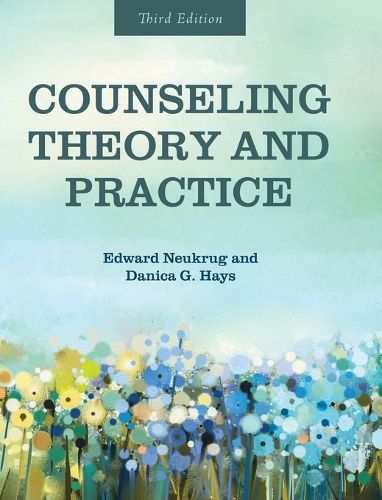Readings Newsletter
Become a Readings Member to make your shopping experience even easier.
Sign in or sign up for free!
You’re not far away from qualifying for FREE standard shipping within Australia
You’ve qualified for FREE standard shipping within Australia
The cart is loading…






This title is printed to order. This book may have been self-published. If so, we cannot guarantee the quality of the content. In the main most books will have gone through the editing process however some may not. We therefore suggest that you be aware of this before ordering this book. If in doubt check either the author or publisher’s details as we are unable to accept any returns unless they are faulty. Please contact us if you have any questions.
Developed for helping professionals, the third edition of Counseling Theory and Practice explains what it means to be an effective helper, discusses foundations of classic counseling and psychotherapy theories, and provides an overview of emerging theories. Chapter 1 examines the efficacy of counseling and therapy, ethical concerns of counseling practice and provides students the opportunity to examine their view of human nature and how it aligns with the theories in the text. The rest of the book examines classic and emerging theories.
Section 1 explores psychodynamic approaches, including psychoanalysis, Jungian therapy, and Adlerian therapy. Section 2 is devoted to existential-humanistic approaches such as existential therapy, Gestalt therapy, and person-centered counseling, while Section 3 discusses cognitive-behavioral approaches, including cognitive behavior therapy (CBT), rational-emotive behavior therapy (REBT), and reality therapy (RT). Section 4 describes post-modern therapies including narrative therapy, solution-focused brief therapy, and relational cultural therapy, a form of feminist therapy. New to this edition is the last section on the emerging theories of acceptance and commitment therapy (ACT), dialectical behavior therapy (DBT), and neurocounseling.
In this edition, Ed Neukrug is joined by Danica Hays who uses her expertise on efficacy, cultural diversity, and gender issues to enhance each chapter. In addition to the new chapters on emerging theories, the text uses inclusive language and fully updated references, adds new vignettes, and highlights existing videos and websites created by Dr. Neukrug.
This book is accompanied by an expanded Cognella Active Learning component for students comprised of videos, reflection exercises, PowerPoint slideshows, flashcards, and quizzes in a digital environment.
This is an ideal text for both pre-service professionals and those already in the field.
$9.00 standard shipping within Australia
FREE standard shipping within Australia for orders over $100.00
Express & International shipping calculated at checkout
This title is printed to order. This book may have been self-published. If so, we cannot guarantee the quality of the content. In the main most books will have gone through the editing process however some may not. We therefore suggest that you be aware of this before ordering this book. If in doubt check either the author or publisher’s details as we are unable to accept any returns unless they are faulty. Please contact us if you have any questions.
Developed for helping professionals, the third edition of Counseling Theory and Practice explains what it means to be an effective helper, discusses foundations of classic counseling and psychotherapy theories, and provides an overview of emerging theories. Chapter 1 examines the efficacy of counseling and therapy, ethical concerns of counseling practice and provides students the opportunity to examine their view of human nature and how it aligns with the theories in the text. The rest of the book examines classic and emerging theories.
Section 1 explores psychodynamic approaches, including psychoanalysis, Jungian therapy, and Adlerian therapy. Section 2 is devoted to existential-humanistic approaches such as existential therapy, Gestalt therapy, and person-centered counseling, while Section 3 discusses cognitive-behavioral approaches, including cognitive behavior therapy (CBT), rational-emotive behavior therapy (REBT), and reality therapy (RT). Section 4 describes post-modern therapies including narrative therapy, solution-focused brief therapy, and relational cultural therapy, a form of feminist therapy. New to this edition is the last section on the emerging theories of acceptance and commitment therapy (ACT), dialectical behavior therapy (DBT), and neurocounseling.
In this edition, Ed Neukrug is joined by Danica Hays who uses her expertise on efficacy, cultural diversity, and gender issues to enhance each chapter. In addition to the new chapters on emerging theories, the text uses inclusive language and fully updated references, adds new vignettes, and highlights existing videos and websites created by Dr. Neukrug.
This book is accompanied by an expanded Cognella Active Learning component for students comprised of videos, reflection exercises, PowerPoint slideshows, flashcards, and quizzes in a digital environment.
This is an ideal text for both pre-service professionals and those already in the field.